Health Social

What is the relationship between social harmony and mental health ?
The text discusses the relationship between social harmony and mental health. Social harmony refers to a state of peaceful coexistence among individuals, groups, or communities where there is mutual respect, cooperation, and understanding. Mental health pertains to a person's emotional, psychological, and social well-being. The impact of social harmony on mental health includes promoting emotional security, encouraging positive interactions, and enhancing social support networks. The impact of mental health on social harmony includes contributing to positive interactions, promoting empathy and understanding, and reducing conflict and tension. The conclusion states that the relationship between social harmony and mental health is bidirectional and that efforts to improve one will inherently benefit the other.

What is the connection between urban green spaces and public health ?
Urban green spaces, such as parks and gardens, promote public health by improving air quality, encouraging physical activity, reducing stress, fostering social connections, and providing access to healthy food options. These spaces are crucial for the physical, mental, and social well-being of city residents.

How does one's personal hygiene affect their social interactions ?
Personal hygiene is crucial for positive social interactions, boosting confidence, and maintaining good health. Good hygiene habits include regular bathing, teeth brushing, wearing clean clothes, hand washing, and taking care of skin and hair. Poor hygiene can lead to social isolation, misunderstandings, and health risks. Following simple tips can ensure that personal hygiene positively impacts social interactions.
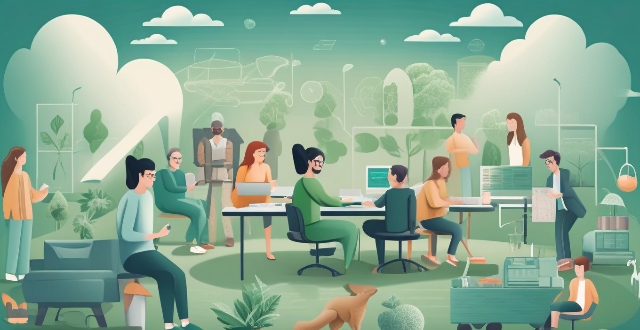
How does climate change affect social structures and relationships ?
The impact of climate change extends beyond environmental changes to significantly affect social structures and human relationships. This includes alterations in living conditions such as resource scarcity and habitat loss, economic disruptions like job market fluctuations and industry adaptations, increased social stress and migration, health implications including direct effects and mental health considerations, political and governance challenges involving policy implementation and legal frameworks, and cultural shifts towards environmental consciousness and education. These transformations necessitate societal adaptation and evolution to confront the multifaceted challenges posed by a changing climate.
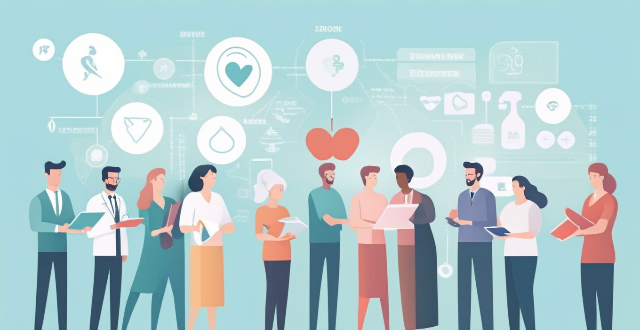
What is social distancing and why is it important during a pandemic ?
Social distancing is a crucial measure in pandemic control. It involves maintaining physical distance between people to reduce the spread of infectious diseases. The importance of social distancing during a pandemic includes reducing transmission rates, protecting vulnerable populations, allowing health systems to cope, and facilitating other public health measures. To effectively implement social distancing, governments and health organizations often recommend or mandate measures such as stay at home orders, remote work, closure of non-essential businesses, cancellation of events, and public awareness campaigns. Adhering to social distancing guidelines becomes a community effort towards a safer and healthier environment for all.
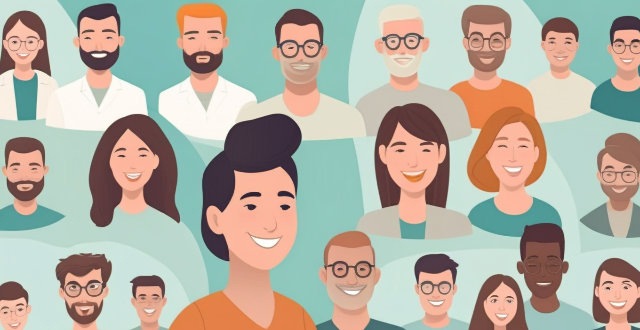
What are the potential health risks associated with climate refugees ?
Climate refugees face potential health risks related to physical and mental health, as well as social determinants of health. These risks include exposure to environmental hazards, limited access to healthcare services, malnutrition and food insecurity, trauma and post-traumatic stress disorder (PTSD), grief and loss, social isolation and alienation, housing instability and overcrowding, limited access to education and employment opportunities, and vulnerability to human rights abuses. Addressing these risks requires a comprehensive approach that includes improving access to healthcare services, ensuring adequate nutrition and safe housing, providing mental health support, and promoting social inclusion and protection against human rights abuses.
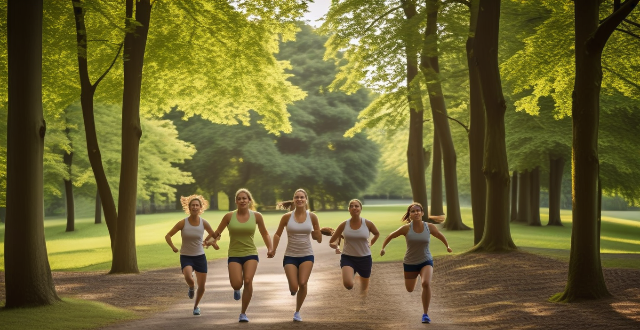
How does regular exercise impact the social well-being of seniors living alone ?
Regular exercise is crucial for enhancing the social well-being of seniors living alone, as it improves mood and mental health, increases social interaction, enhances cognitive function, and reduces the risk of chronic diseases. Engaging in regular exercise can help seniors maintain their independence and improve their overall quality of life.

Are there any specific exercise programs designed for seniors that focus on building social connections ?
The article discusses the benefits of exercise programs for seniors that focus on building social connections. It highlights how regular exercise can improve physical health, mental health, and increase social connections in seniors. Examples of such programs include SilverSneakers, Tai Chi, walking groups, yoga, and water aerobics. The article emphasizes the importance of staying active and connected within communities as we age.
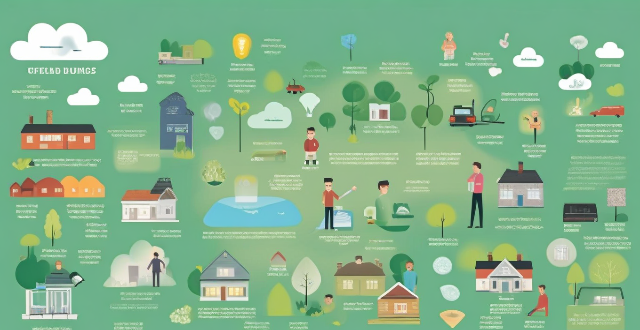
What are the social implications of environmental degradation ?
The article discusses the social implications of environmental degradation, including health impacts such as air pollution and water pollution, economic impacts such as loss of biodiversity and job losses, social impacts such as displacement and cultural loss, and political impacts such as conflicts and refugees. It emphasizes the need for collective action to address these challenges and protect the natural environment for future generations.

What are the social consequences of natural disasters caused by climate change ?
Natural disasters, intensified by climate change, have extensive social repercussions affecting health, economy, social order, education, and the environment. Immediate impacts include physical harm and mental distress, while long-term effects range from economic setbacks to environmental degradation. Addressing these consequences necessitates a multifaceted strategy encompassing emergency measures, recovery efforts, and sustainable development practices to foster community resilience.

What are the psychological effects of social media on teenagers ?
This article discusses the psychological effects of social media on teenagers, including increased anxiety and depression due to comparison with others' lives, fear of missing out (FOMO), cyberbullying, disrupted sleep patterns, decreased face-to-face interaction, body image issues, and cyberchondria. Parents and educators should monitor their children's social media usage and encourage healthy habits to help them navigate these challenges.

Can team sports help with social anxiety ?
Team sports can potentially help individuals with social anxiety by providing a supportive environment for exposure therapy, building confidence, offering positive reinforcement, distracting from self-consciousness, and developing social skills. However, professional guidance should be sought if social anxiety significantly impacts one's life.

How does sports contribute to social inclusion ?
Sports have the power to promote social inclusion by breaking down barriers, promoting teamwork, providing opportunities for participation, building confidence and self-esteem, and promoting health and wellbeing.

What is social inclusion and why is it important ?
Social inclusion refers to the process of ensuring that all individuals can participate in all aspects of society. It aims to create a society where everyone feels valued, regardless of their background. Key elements include equal opportunities, non-discrimination, participation, empowerment, and solidarity. Social inclusion is important for promoting equity and fairness, enhancing economic growth, improving health and well-being, reducing poverty and exclusion, enhancing social cohesion, and supporting sustainable development.
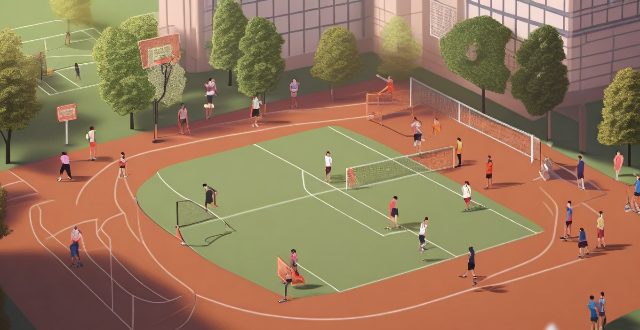
How does team sports contribute to social well-being ?
Team sports significantly contribute to social well-being by building a sense of community, promoting cooperation and teamwork, providing opportunities for personal growth, enhancing health and well-being, integrating into society, and encouraging civic engagement and social responsibility. These activities not only bring people together but also teach valuable life skills that extend beyond the playing field, positively impacting individuals and society as a whole.
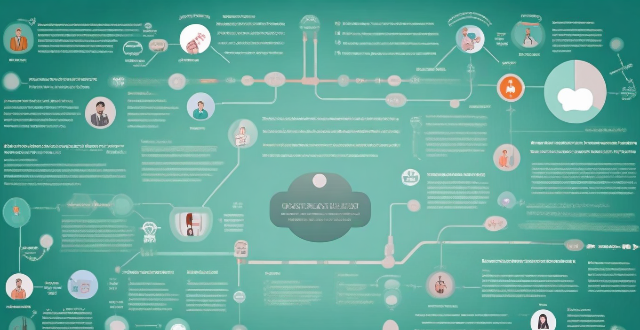
What is the importance of mental health in global health initiatives ?
This document discusses the importance of mental health in global health initiatives. It explains why mental health matters and how it affects physical health, economic stability, and social outcomes. The document also discusses how mental health affects global health initiatives and emphasizes the need for culturally sensitive approaches to address mental health issues sustainably.

What is the impact of social media on women's mental well-being ?
Social media has become an integral part of our daily lives, and it has both positive and negative impacts on women's mental well-being. In this article, we will discuss the various ways in which social media affects women's mental health. ### Negative Impacts: #### 1. **Comparison and Jealousy** One of the most significant negative impacts of social media on women's mental well-being is the constant comparison and jealousy that arises from seeing other people's highlight reels. Women often compare themselves to others on social media, leading to feelings of inadequacy and low self-esteem. This can result in anxiety, depression, and even eating disorders. #### 2. **Cyberbullying and Harassment** Social media platforms are also notorious for cyberbullying and harassment, particularly towards women. Online harassment can take many forms, including trolling, stalking, sexual harassment, and doxxing. These actions can have severe consequences on a woman's mental health, leading to trauma, anxiety, and depression. #### 3. **Addiction and Time Management** Social media addiction is another issue that affects women's mental well-being. Spending excessive time on social media can lead to procrastination, reduced productivity, and poor time management skills. This can cause stress, anxiety, and feelings of guilt, ultimately affecting a woman's overall mental health. #### 4. **Body Image Issues** Social media is flooded with images of perfect bodies and beauty standards, which can negatively impact a woman's body image. Constant exposure to these unrealistic beauty standards can lead to body dysmorphia, eating disorders, and low self-esteem. ### Positive Impacts: Despite the negative impacts, social media also has some positive effects on women's mental well-being. #### 1. **Support and Community** Social media provides a platform for women to connect with like-minded individuals and form supportive communities. These online communities can offer emotional support, advice, and encouragement, helping women cope with various issues they face in their personal and professional lives. #### 2. **Education and Awareness** Social media is an excellent source of information and education on various topics related to women's health, such as menstrual hygiene, reproductive rights, and breast cancer awareness. This increased awareness can empower women to make informed decisions about their health and well-being. #### 3. **Self-expression and Creativity** Social media platforms provide women with an opportunity to express themselves creatively through writing, photography, art, or other forms of content creation. This creative outlet can serve as a therapeutic tool for women to cope with stress, anxiety, or depression. #### 4. **Career Opportunities** Social media has opened up numerous career opportunities for women in fields such as digital marketing, content creation, and influencer marketing. These opportunities allow women to pursue their passions while maintaining flexible work schedules that accommodate their personal lives. In conclusion, social media has both positive and negative impacts on women's mental well-being. While it can lead to comparison, jealousy, cyberbullying, addiction, and body image issues, it also provides support, education, self-expression, and career opportunities. It is essential for women to be aware of these impacts and use social media mindfully to maintain their mental health and well-being.
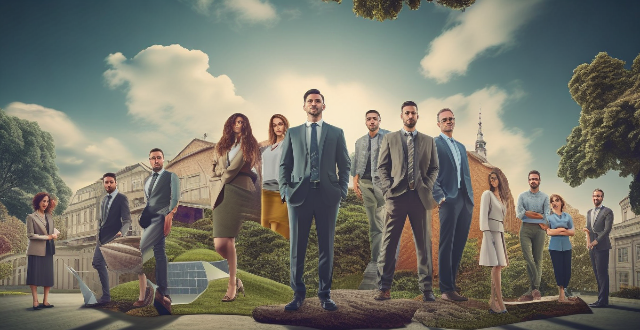
How does sports improve social skills ?
Sports significantly enhance social skills through teamwork, confidence-building, dealing with diversity, interpersonal development, and leadership. Participation fosters cooperation, communication, shared responsibility, achievement, resilience, public performance, acceptance, adaptability, respect, networking, empathy, conflict resolution, role assumption, motivation, and decision-making. These skills are transferable to various aspects of life, making sports a valuable platform for personal growth and social interaction.

Is social media addiction a real problem, and how can it be addressed ?
Social media addiction is a growing problem with significant impacts on mental health, relationships, and productivity. Recognizing the signs of addiction, such as excessive use or neglecting important activities, is crucial for addressing the issue. The negative effects include mental health issues, relationship problems, and reduced productivity. To combat social media addiction, individuals can set limits on usage, find alternative activities, practice mindfulness, and seek professional help if needed.

Is there a difference between male and female social etiquette, and if so, what are they ?
The text explores the differences in social etiquette between men and women, highlighting key areas such as greetings, dress code, conversation topics, body language, emotional display, politeness, interaction with authority figures, and handling criticism. While there are traditional expectations for each gender, individual personality and cultural background significantly influence these behaviors. As societal norms change, distinctions in male and female social etiquette are becoming less defined, promoting greater flexibility and personal expression across genders.

What is the importance of mental health in overall personal well-being ?
The text discusses the importance of mental health in overall personal well-being. It explains how good mental health can lead to better physical health, emotional stability, healthy social relationships, workplace productivity, and an improved quality of life. The article emphasizes the need for prioritizing mental health by seeking professional help when needed, practicing self-care, and engaging in activities that promote good mental health.
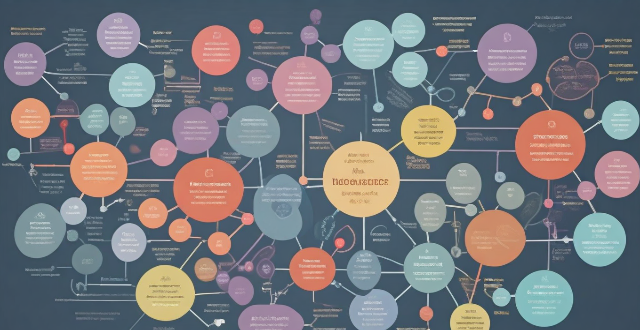
How does equitable vaccine distribution affect public health outcomes ?
Equitable vaccine distribution is crucial for global health security, herd immunity, reduced disease severity, economic stability, and social equity. It leads to decreased transmission rates, improved global health indicators, increased trust in health systems, and enhanced research. However, logistical hurdles, political will, and resource allocation are challenges that must be addressed.
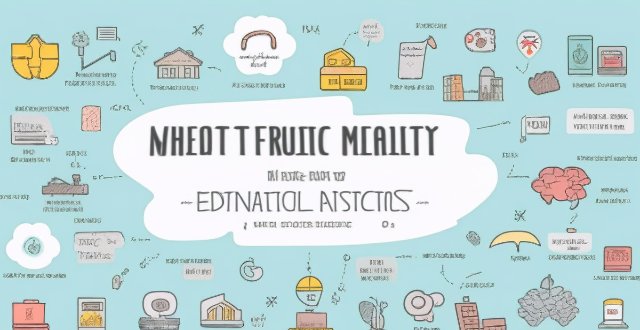
When should I claim Social Security benefits ?
The text discusses the decision of when to start claiming Social Security benefits. It outlines four factors to consider: age and health; work history; financial situation; and marital status. The text suggests that delaying claiming benefits can increase the monthly benefit amount, but this depends on individual circumstances such as health and financial situation. It emphasizes the importance of careful consideration and consulting with a financial advisor before making any decisions.

How does exercise influence social skills in children ?
Exercise plays a crucial role in shaping children's social skills by enhancing communication, empathy, emotional intelligence, resilience, problem-solving abilities, healthy risk-taking, and leadership skills. Physical activity helps children build self-confidence, promotes teamwork, develops empathy, enhances emotional intelligence, increases resilience, enhances problem-solving abilities, encourages healthy risk-taking, and fosters leadership skills. These skills are essential for establishing positive relationships with peers and contributing to their communities. Therefore, it is imperative to encourage children to engage in regular exercise to support their overall development and success in life.
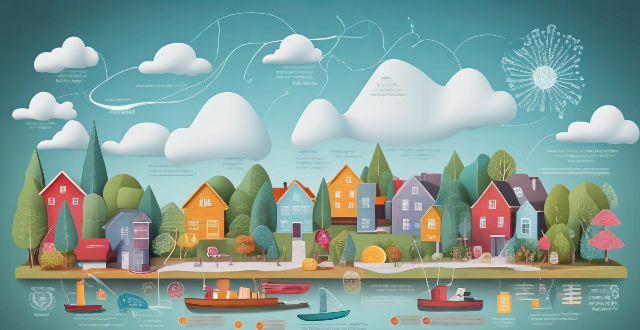
How do climate losses and damages impact human health ?
This article discusses the impact of climate change on human health, highlighting various ways in which climate losses and damages can affect well-being. It covers topics such as extreme weather events causing physical injuries and illnesses, worsening air quality leading to respiratory problems, food insecurity resulting in malnutrition, increased waterborne diseases due to warmer water sources, and mental health issues arising from displacement and migration. The article emphasizes the need for a comprehensive approach to address these challenges, including mitigating greenhouse gas emissions, adapting to changing conditions, and providing support for vulnerable populations.
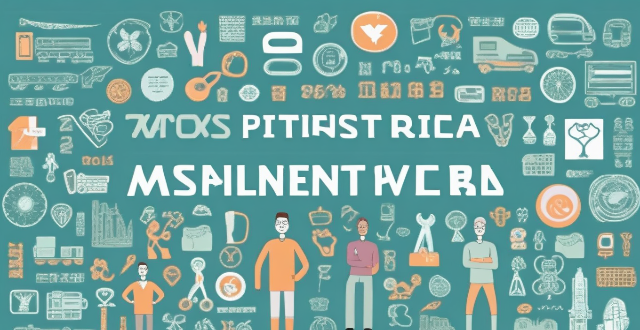
Can sports be used as a tool for social change and community development ?
This text discusses the potential of sports as a tool for social change and community development. It highlights how sports can break down barriers, promote health and well-being, and contribute to education and personal development. The article also explores how sports can address social issues, empower communities economically, and promote peace and reconciliation. However, it emphasizes the need for equitable resource allocation, accessibility, and sustainability to fully realize the potential of sports in societal transformation.

How does sea level rise impact public health, especially in coastal areas ?
Sea level rise, driven by global warming and climate change, poses significant threats to public health in coastal areas through flooding and storm surge, waterborne diseases, environmental health hazards, mental health concerns, economic impacts, and social determinants of health. Addressing this challenge requires a multifaceted approach that includes adaptation strategies, improved infrastructure resilience, and mitigation efforts to reduce greenhouse gas emissions.

What are some examples of successful corporate social responsibility programs ?
Successful Corporate Social Responsibility (CSR) programs benefit society and the environment, enhancing a company's reputation. Examples include Starbucks supporting coffee farmers, Coca-Cola providing clean water in Africa, Unilever reducing carbon emissions, Microsoft using AI for environmental solutions, Walmart reducing food waste, Google powering operations with renewable energy, Patagonia donating to environmental causes, and Johnson & Johnson raising funds through social media engagement. These programs not only make a positive impact but also strengthen relationships with stakeholders.

In what ways can social media impact my personal image ?
Social media has become an integral part of our daily lives, and it can significantly impact our personal image. Here are some ways in which social media can affect how others perceive us: Positive Effects: - Building a Professional Brand: Social media provides networking opportunities and allows individuals to showcase their achievements and expertise. - Enhancing Personal Reputation: Individuals can project a positive image by sharing accomplishments, hobbies, and interests, and engage with followers to build a loyal community. Negative Effects: - Damaging Professional Reputation: Posting unprofessional content or oversharing personal information can harm one's professional image and lead to privacy breaches. - Harming Personal Reputation: Cyberbullying and sharing false information can damage mental health and make individuals appear unreliable or irresponsible. Managing Your Online Presence: - Best Practices for Maintaining a Positive Image: Monitor your content, use privacy settings, think before you post, and maintain consistency across platforms. - Handling Negative Situations: Address mistakes proactively and seek professional help if necessary. Overall, social media can be a powerful tool for enhancing or damaging one's personal image. By being mindful of what you share online and actively managing your digital footprint, you can use social media to your advantage while minimizing potential risks.

In what ways can retirement communities incorporate physical activities that foster social bonds ?
Retirement communities can foster social bonds among older adults by incorporating a variety of physical activities that cater to different interests and abilities. These include group fitness classes, outdoor adventures, sports and games, mind-body activities, special events, and ensuring accessibility and inclusivity for all residents. By doing so, retirement communities can create an environment where residents maintain their health while developing strong social connections through shared experiences.